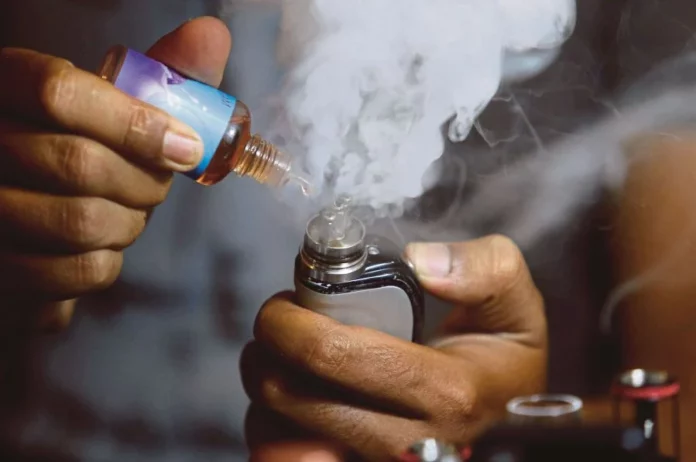KUALA LUMPUR, April 5 — The government’s moderate approach of imposing a tax on the sale of vape liquid for electronic cigarettes (e-cigarettes) beginning April 1, is seen as a win-win situation for industry players and in the government’s efforts to control the smoking habit among the people in the country.
Malaysia Retail Electronic Cigarette Association (MRECA) president Datuk Adzwan Manas said the approach was appropriate given the vape industry had been developed by small and medium enterprises (SMEs) and local entrepreneurs.
“It has birthed an ecosystem that has become part of the national economy. Drastic measures to ban vaping is not appropriate and will only wipe out the local industry,” he told Bernama today.
On Tuesday, Prime Minister Datuk Seri Anwar Ibrahim said the move to introduce a tax is among the moderate approaches to regulate smoking products that contain nicotine and stop the smoking habit among the people in this country.
Meanwhile, Malaysian Organisation of Vape Entity (MOVE) president Samsul Kamal Ariffin said his team has been fighting for almost 13 years for the vape industry to be regulated.
“We understand and accept the move to impose a tax because this is part of the regulatory framework,” he said.
Therefore, he proposed that the government prepare a clear regulatory framework at three levels covering the manufacture of liquids for e-cigarettes, as well as for sales and consumption.
He said Malaysia needs regulations to, among other things, determine specific and controlled locations or areas for the manufacture of vape liquids, and to implement rules such as the distance between the premises (vaping) and schools as well as the age limit of individuals who are allowed to enter the (vaping) premises in addition to guidelines for vape users.
Meanwhile, e-cigarette user Muhammad Amirul Razali, 27, said imposing the tax will probably deter the new generation from using e-cigarettes.
“Existing vape users will continue to buy vape because it has become a habit. Cigarettes have a high tax but smokers are still willing to buy them,” said the engineer with a private company.
Hiekal Rosli, 42, the owner of Molek Vape Store, believes the implementation of the tax will indirectly affect e-cigarette prices in the market.
“Currently, from the information we have received, producers will be taxed, so when producers are taxed, the prices of the products are expected to increase,” he said.
On April 1, the media reported that the government through a federal government gazette imposed an excise tax of 40 sen per millilitre on vape liquids for e-cigarettes.



















